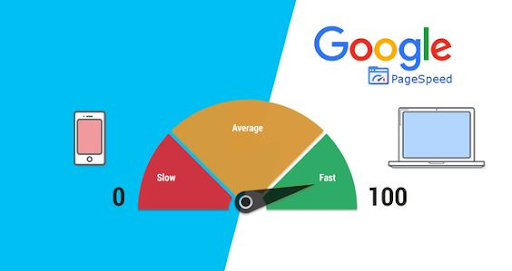Introduction
Page Speed is also referred to as load speed. It calculates how fast the content of a webpage loads. If your content is loading faster, it means your page speed is loading quickly.
In today’s fast-paced world having a fast page speed is significant. In this article, you will see why page speed matters, why it is important, and how to improve the page speed score.
What is Page Speed

Page speed calculates how fast your content is loading on a web page. Sometimes people need clarification on page speed and page load time.
Page speed is essential as it attracts more visitors to the site. It also leads to a better user experience and increases revenue and conversion rates.
Many factors influence the speed of the page such as operating system, connection type, type and quality of content, and so on.
Now let’s take a look at some important topics for the page speed score.
Why Page Speed Matters
Page speed heavily influences the user experience. If your website loads slower, visitors will move away, negatively impacting search engine rankings.
If your website loads quickly, the users happily browse your site and it leads to a better user experience. It increases the conversion rates and revenue for your business.
What Factors Affect Page Speed
There are five factors mentioned below that affect the speed of your page:
1) Your Hosting Service
A dedicated and quality hosting for the site is needed to improve the user experience. By selecting reliable hosting, you make sure that the web server processes the requests quickly to adapt to all tasks on your website.
2) User Location
Latency occurs due to the location of the users and it heavily affects the page speed. If the server of your website is located far from the users your site will load slowly.
Alternatively, if the server of your site is located nearby it helps to improve the page speed of the users. With the help of Content Delivery Networks, you can improve the page speed.
3) Internet Connection
You cannot control the internet connectivity of the users. The fast or slow loading of the website depends on the user’s internet connection.
Users on 2G or 3G internet connections experience slow page speed whereas the users on 4G or 5G connections always get better page speed.
4) Device Choice
Users always want their devices to perform well in terms of page speed. In this fast-paced world users want their mobile to perform exactly like the desktop.
If you analyze a website, you can see, that the page speed on the desktop is good and lower on mobile devices.
5 Ways to Boost Your Page Speed
Let’s take a look at some ways to improve the page speed.
1) Try to Use A Content Delivery Network
Using a Content Delivery Network helps you to improve the page speed. A site that is receiving traffic from all over the world takes advantage of CDNs.
With the help of a CDN, you serve the website quickly by saving copies of it all over the world on CDNs.
2) Compress the Images
If you want to improve the page speed and SEO search rankings, you need to compress the images. You should compress your images without losing their quality and the real size of the image.
RabbitLoader is one such plugin that compresses your image without compromising the quality of the image and boosts the speed of your page.
3) Remove Render-Blocking Resources
Render-blocking resources such as Javascript improves the speed of your page significantly. It occurs as the browser parses the HTML of your page before rendering the page to the visitors.
If the browsers come into contact with a render-blocking code of Javascript, they need to implement it, which significantly improves the speed of your page.
To achieve the best page speed result, Google suggests making use of the async attribute for the external Javascript files. It also includes deferring and inlining the render-blocking Javascript.
4) Minify Javascript, HTML, and CSS
Minification of CSS, Javascript, and HTML files is required to improve your page speed. Minification of these reduces the file size.
To start the process you need to eliminate white spaces, line breaks, and other unimportant elements available in the code. This code does not influence the user experience.
The real version seems easy for the users to read but the minified version is way more easy to process for the system. Consequently, it leads to the better page speed.
Conclusion
Speeding up your page is not only essential for a better user experience. It also makes an impact on your search engine ranking. In today’s fast-paced world, humans do not have time to wait for a single second. So, if you do not want to lose a user you should try to improve the page speed immediately.
You can use RabbitLoader, a speed optimization plugin that helps you to improve the speed of your page.

Leave a Reply